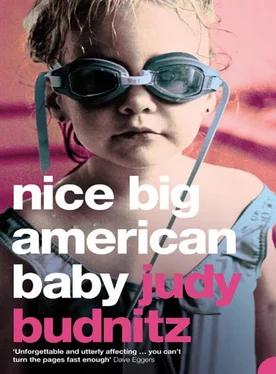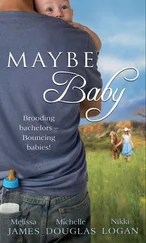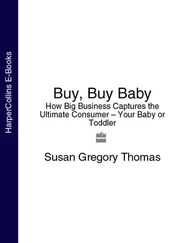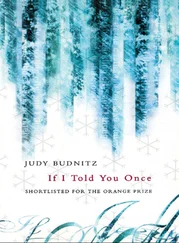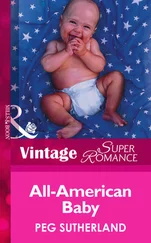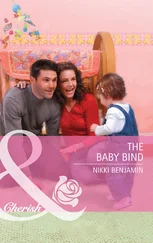He’d been their son for over a year when he told them about the face.
He appeared at their bedside in the middle of the night, white and glowing in his astronaut pajamas. “Can I come in?” he said.
They relished the moment, kissing him, tickling him, tucking him in between them.
“Did you have a bad dream?” the mother said.
“There was a face in the window,” the boy said, and described glittering eyes and shining teeth and a wiry net of hair, long fingers scrabbling at the sill and warm breath that seeped into the room. A sad face. It watched him for a long time, he said, not moving.
“It isn’t real,” the father said. “It’s only a dream.”
The mother thought of goblins, gypsies, pirates, a hundred fairy tales of stolen children. She tightened her grip. “We’ll protect you,” she whispered fervently. “We’ll never let anyone take you away.”
“Take me away?” the boy said. The father groaned softly.
She realized she’d made a blunder, planting a new fear in his head that had not been there before.
The next day the father made a great show of testing the locks on the boy’s bedroom window. He pointed out the tree branches that moved in the wind like hair. He talked about the damp smells rising up from the basement, the stink and scrabbling of skunks digging through the garbage cans. The boy listened impassively.
For the next few nights the boy slept peacefully. The parents did not.
And then he was back, glowing in the dark, his feet padding across the floor. “It’s back,” he said calmly. They lifted their covers for him, pleased that he was finally having the normal problems of a normal child.
The face came back periodically. Not often, but every few weeks. The parents tried to dispel the son’s fears, but with less and less enthusiasm as time went on. They worried that if the nightmares stopped, the tenuous intimacy with their son would be gone forever. The mother, in her heart of hearts, secretly made contingency plans—if his nightmares stopped, she’d simulate them (a Halloween mask dangled from the roof, say).
If she left the imprint of a finger in his sandwich, her son would eat around it and leave the little island on his plate. He continued to flinch at the touch of her hand. Still, she sometimes wondered if he was secretly starved for affection, if he’d fabricated the face story as an excuse.
Or maybe, she thought, he’d invented the face as a way of comforting them. She wouldn’t put it past him, her wise little son.
In the night she stroked her son’s shoulders and kissed the top of his head. She wrapped her arms around him and pretended he was inside her.
The next morning she went into his room to make the bed and found the window open and the curtains frothing in the wind. She felt a momentary panic—danger! falling baby!—but the window guard was still in place. She closed the window and locked it. As she was turning away she noticed fingerprints spotting the glass. She must have done that herself, just now. How careless. I’ll clean it later, she thought, and bent to the bed, brushing away a few of her son’s long black hairs.
To her surprise, she found the bottom sheet damp. Never before had her son wet the bed. She dipped her fingers in the wet spot, feeling fascinated, amazed, intensely maternal. My son, she thought proudly, wets the bed. She imagined telling a friend about it. Oh, yes, like any normal child, he wets the bed occasionally. When he has a nightmare. What can you do? No, of course we’re not worried about it. He’ll outgrow it eventually.
But still there was something strange about it.… The stain was perfectly clear; it looked like water. And rather than one spot it was composed of many, a string of drops.
She glanced around furtively to make sure she was alone, then raised her wet fingers to her nose. She smelled nothing. She put her fingers to her tongue. The wetness tasted like tears.
I called my sister and said, What does a miscarriage look like?
What? she said. Oh. It looks like when you’re having your period, I guess. You have cramps, and then there’s blood.
What do people do with it? I asked.
With what?
The blood and stuff.
I don’t know, she said impatiently. I don’t know these things, I’m not a doctor. All I can tell you about anything is who you should sue.
Sorry, I said.
Why are you asking me this? she said.
I’m just having an argument with someone, that’s all. Just thought you could help settle it.
Well, I hope you win, she said.
I went home because my sister told me to.
She called me and said, It’s your turn.
No, it can’t be, I feel like I was just there, I said.
No, I went the last time. I’ve been keeping track, I have incontestable proof, she said. She was in law school.
But Mitch, I said. Her name was Michelle but everyone called her Mitch except our mother, who thought it sounded obscene.
Lisa, said Mitch, don’t whine.
I could hear her chewing on something, a ballpoint pen, probably. I pictured her with blue marks on her lips, another pen stuck in her hair.
It’s close to Thanksgiving, I said. Why don’t we wait and both go home then?
You forget—they’re going down to Florida to be with Nana.
I don’t have time to go right now. I have a job, you know. I do have a life.
I don’t have time to argue about it, I’m studying, Mitch said. I knew she was sitting on the floor with her papers scattered around her, the stacks of casebooks sprouting yellow Post-its from all sides, like lichen, Mitch in the middle with her legs spread, doing ballet stretches.
I heard a background cough.
You’re not studying, I said. Neil’s there.
Neil isn’t doing anything, she said. He’s sitting quietly in the corner waiting for me to finish. Aren’t you, sweetheart?
Meek noises from Neil.
You call him sweetheart? I said.
Are you going home or not?
Do I have to?
I can’t come over there and make you go, Mitch said.
The thing was, we had both decided, some time ago, to take turns going home every now and then to check up on them. Our parents did not need checking up, but Mitch thought we should get in the habit of doing it anyway. To get in practice for the future.
After a minute Mitch said, They’ll think we don’t care.
Sometimes I think they’d rather we left them alone.
Fine. Fine. Do what you want.
Oh, all right. I’ll go.
I flew home on a Thursday night, and though I’d told them not to meet me at the airport, there they were, both of them, when I stepped off the ramp. They were the only still figures in the terminal; around them people dashed with garment bags, stewardesses hustled in pairs wheeling tiny suitcases.
My mother wore a brown coat the color of her hair. She looked anxious. My father stood tall, swaying slightly. The lights bounced off the lenses of his glasses; he wore jeans that were probably twenty years old. I would have liked to be the one to see them first, to compose my face and walk up to them unsuspected, like a stranger. But that never happened. They always spotted me before I saw them and had their faces ready and their hands out.
Is that all you brought? Just the one bag?
Here, I’ll take it.
Lisa, honey, you don’t look so good. How are you?
Yes, how are you? You look terrible.
Thanks, Dad.
How are you? they said, over and over, as they wrestled the suitcase from my hand.
Back at the house, my mother stirred something on the stove and my father leaned in the doorway to the dining room and looked out the window at the backyard. He’s always leaned in that doorway to talk to my mother.
Читать дальше
